2 - Dec, 10 - 11:15
Inauguration and Keynote: The Role of Turbomachinery in the Decarbonization of Energy
Our world is changing, and so should we.
The implications of climate change paired with the increase in energy demand result in major challenges for our planet. As temperatures climb globally, roughly 770 million people still do not have access to electricity, the heart of energy supply systems and long-range growth. And as we look into the future, we see even more reason to take sustainable action. Studies show that global energy demand could rise as much as 25% through 2040 – along with increased level of climate damaging greenhouse gases.
For this reason, the central question facing energy providers is this: How can we fulfill our task of meeting the growing demand for electricity worldwide and at the same time take on the responsibility of actively shaping the path to a climate-friendly future – in a sustainable, affordable and reliable manner? In short: How can we successfully implement a decarbonization journey that benefits our customers, societies at large and ourselves?
Power sector decarbonization
At Siemens Energy, we’re supporting our customers in transitioning to a more sustainable world using our innovative technologies, extensive experience, and an ambitious strategy to drive the decarbonization of global energy systems.
We adapt to new realities and seize emerging opportunities. But decarbonization takes time. It's not an overnight shift. We are pragmatic and thorough. Our approach is holistic and step by step.
We improve the efficiency of existing energy assets. We upgrade and modernize wherever possible. The transition away from conventional fuels comes next. We move from coal to gas and then to hybrid systems and cleaner fuels, such as hydrogen.
This is how we can lead the way to a deeply decarbonized world. This is how we support governments, utilities, and industry to a transformed system of energy.
Future Technologies
Siemens Energys future-focused technologies bridge the gap for emerging energy systems. As a partner and driver of the energy transition, we've focused our tech innovations across these areas: highly efficient transmission and storage of electricity, power generation with even lower or zero emissions, and reducing CO2 emissions in industrial processes.
Let's get to work and make real what matters. Let's energize society with our unique portfolio. Fuel-flexible and hydrogen-ready gas turbines. Combined cycle plants. Hybrid power and energy storage. Power-to-x and sector coupling. We have what it takes to decarbonize society.
In this keynote address, Paul Garbett, Head of Product & Solution Development for the Siemens Energy Gurgaon Engineering Hub, will show how turbomachinery can play a key role in this journey of decarbonizing energy.
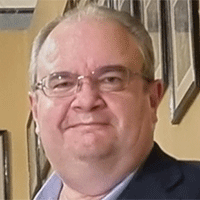
Paul Garbett is currently the Head of Product & Solution Development and the General Manager of Large Gas Turbine Modules Engineering for Siemens Energy based in Gurgaon, India. Paul graduated with a degree in Mechanical Engineering from Cambridge University in 1989 and joined Ruston Gas Turbines as a Graduate Trainee. He specialized in stress methods working on Small Industrial Gas Turbine models. Paul moved to Westinghouse (now Siemens) in the USA in 1996 as a turbine blade design engineer. From 2003 to 2010 he led the development of the SGT5-8000H Gas Turbine culminating in validation at the Ulrich-Hartmann power plant in Irsching, Germany. Paul currently leads the Compressor, Combustor, Turbine and Whole Engine design teams for the Siemens Energy Large Gas Turbine product range. Recently Paul relocated to India to also lead the cross-product engineering R&D team focused on rotating machinery and auxiliary systems. Paul is a Chartered Engineer and Corporate Member of the Institution of Mechanical Engineers in the UK, is a member of the ASME Industrial Advisory Board and formerly a member of the ASME Gas Turbine Segment Leadership Team.
2 - Dec, 12:55 - 1:35
Poster Review and Lunch
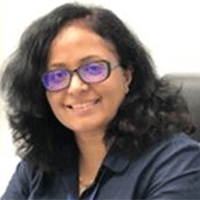
Harmeet Kaur
Doctor of Philosophy, Department of Aerospace Engineering
Indian Institute of Technology Bombay
Poster Competition Judge
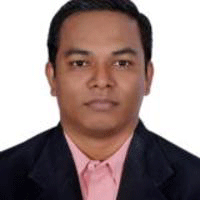
Chetan Mistry
Senior Engineering Manager
Infosys
Poster Competition Judge
2 - Dec, 1:35 - 3:05
Panel discussion: Advanced methods for Analysis & Design
Four panelists, two from Academia and two from Industry, will present their views on this topic drawn from their substantial experience. From academia you can expect coverage of conventional types of analyses that are only now being applied in industrial settings and novel methods that have changed the approach to diagnosing and predicting system dynamics. From industry we will hear of how novel methods have and can be expected to change the practice of analysis and design.
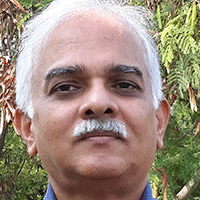
Dr. Joseph Mathew (Moderator) is Professor and Chair of the Department of Aerospace Engineering, Indian Institute of Science, Bangalore. He obtained his B. Tech from the Indian Institute of Technology Madras (1984), MS from the University of Missouri-Rolla (1986) and PhD from the Massachusetts Institute of Technology (1990), all three from Mechanical Engineering Departments. After post-doctoral positions at ICOMP, NASA Glenn Research Center, Cleveland, and National Aerospace Laboratories, Bangalore, he joined IISc as an Assistant Professor in 1995. His research interests are in Turbulence, transition, stability and wave propagation, computing with DNS/LES, and applications to turbomachinery, aeroacoustics and combustion. He has had research collaborations on LES with TU-Munich (2000-2011) and AFRL, Dayton (2004-5). He is a Fellow of the Indian National Academy of Engineering and an Associate Fellow of AIAA. He has been closely associated with ASME Gas Turbine conferences in India, serving as Review Chair in 2013 and 2015, and is currently Chair of the Executive Committee for ASME Gas Turbine India.
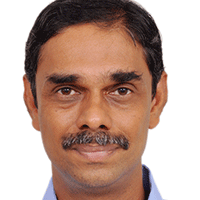
Dr. R. I. Sujith (Panelist) received his Ph. D. along with "top graduate student in the college of engineering" award from the Georgia Institute of Technology in 1994 under the supervision of Prof. Ben T Zinn. He is currently the D. Srinivasan Chair Professor at the Department of Aerospace Engineering at the Indian Institute of Technology Madras. He is a recipient of the Alexander von Humboldt Fellowship and the Hans Fischer Senior Fellowship of the Institute for Advanced Study (IAS) of the Technical University of Munich. Sujith was the founding Editor-in-Chief of the International Journal of Spray and Combustion Dynamics from 2009-2015, and is currently a member of the editorial advisory board of Chaos. He has won the Young Engineer Award of the Indian National Academy of Engineering. He has been awarded the Swarnajayanti Fellowship and the J. C. Bose Fellowship by the Department of Science & Technology. He is a distinguished fellow of the International Institute of Acoustics & Vibration (IIAV), fellow of the Indian National Academy of Engineering and the Indian Academy of Sciences, and has been conferred the title of "TUM ambassador" of the Technical University of Munich. Sujith currently works on the application of dynamical systems and complex systems theory to study and mitigate thermoacoustic instability.
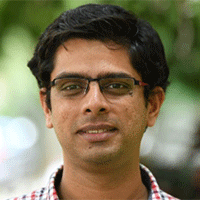
Santosh Hemchandra (Panelist) is an associate professor in the Department of Aerospace Engineering, Indian Institute of Science (IISc), Bangalore, India. He earned his Ph. d. (Aerospace engineering) from Georgia Tech. (2009) and has been at IISc since 2012. His research group primarily focuses on modelling the dynamics of reacting flows in gas turbines and rockets. They explore these phenomena using modelling approaches ranging from hydrodynamic and thermoacoustic stability analysis and Large eddy simulation (LES) of chemically reacting flows, with support from key industry OEMs and govt. agencies in these areas. Apart from these combustion focused studies, his group is also involved in research in other areas such as understanding fundamental mechanisms of jet noise and more recently, turbulent boundary layer flow in the transitional transonic regime.
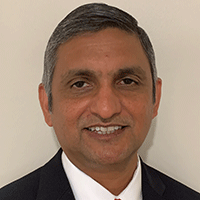
Ravi Avancha (Panelist)leads a team of aerothermal specialists at GE Research, in Bangalore – focused on solving complex aerothermal problems for GE Aviation, Healthcare and Power/Renewable Energy. Prior to this role, he was leading a team of turbine aerodynamicists at GE Aviation in Cincinnati OH. In a business development role from 2017-2019, he has helped shape technology collaboration efforts working with NASA and FAA, and universities. He has 20 years of work experience in industry, 17 of which at GE, in aerothermal modeling & simulation, and leading design teams. He graduated with a Ph.D. in 2001 from Iowa State University, specializing in large eddy simulation of complex turbulent flows. He has been actively involved with the IGTI Turbo Expo and ASME GT India in various roles.
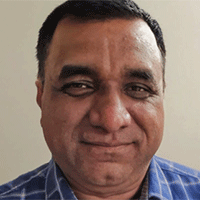
Jaydeep Basani (Panelist) is Lead Mech Design Engr at Honeywell Technology Solution Lab, Bangalore and leads the turbomachinery combustion and emission team. For the last 16 years, he has been a key member in the development of CFD based high fidelity analysis method and establishing LES based design tool for combustor development in Honeywell Aerospace. Previously he was with Safran Aerospace India, and the Vikram Sarabhai Space Center, ISRO. He has more than 21 years of experience in CFD analysis and design of combustors. He obtained his ME in Aerospace Engineering from IISC, Bangalore and BE in Chemical Engineering from NIT, Durgapur. He is a certified PMP from PMI and have completed EGMP from IIM, Bangalore.
2 - Dec, 3:15 - 5:15
Prof. BVSSS Prasad Memorial Invited Lecture
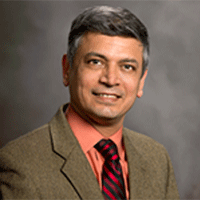
Dr. S. V. Ekkad (Panelist) is the Department Head and RJ Reynolds Professor in the Mechanical & Aerospace Engineering Department at North Carolina State University since September 2017. He previously served as the Associate Vice President for Research Programs at Virginia Tech. He also held the title of Rolls-Royce Commonwealth Professor for Aerospace Propulsion Systems at Virginia Tech. He was also the Founder and Director of the Rolls-Royce University Technology Center for Advanced System Diagnostics at Virginia Tech, one of 30 centers around the world, prior to joining NC State. He was in the Mechanical Engineering department at Virginia Tech from August 2007 to September 2017 after 9 years at LSU and 2 years at Rolls-Royce Allison Engine Company in Indianapolis. He received his Ph.D. from Texas A&M University and M.S. from Arizona State University. He has over 25 years of experience in heat transfer related research. He has published over 250 journal & conference articles, three patents and co-authored a book and three book chapters. He currently has funding from Solar Turbines, and Trilotus Aerospace Systems/Chromalloy. He has been working on gas turbine cooling and heat transfer issues since 1989 including a stint as a design engineer at Rolls-Royce, Indianapolis before his academic career. Dr. Ekkad has also served as a summer faculty fellow at AFRL, Dayton in 2003. He is well known for his contributions to heat transfer experimental methods. In 2004, he received the inaugural ASME Bergles/Rohsenow Young Investigator in Heat Transfer Award for significant contributions to the field of heat transfer by a researcher under the age of 36. He is also the Editor-in-Chief for the ASME Journal for Thermal Science and Engineering Applications. He was recently named to receive the 2022 AIAA Air Breathing Propulsion Award.
3 - Dec, 11:10 - 12:10
Keynote: Energy Transition Imperatives for Sustainability
Climate change is an urgent global priority. In the energy space, demand is increasing and roughly one billion people are without access to reliable power. In the Aviation industry , ATAG & IATA have adopted bold targets for reduction in net aviation CO2 emissions of 50 percent by 2050, relative to 2005 levels while the European aviation industry announced in Destination 2050 a pathway to net zero emissions by 2050 and a 55 percent reduction by 2030.
GE is committed to tackling the world’s biggest challenges with a clear alignment to sustainability—leading the energy transition to drive decarbonization, developing precision healthcare that personalizes diagnoses and treatments, and building a future of smarter and more efficient flight. We are dedicated to improving our impacts and lifting up our people, communities, and planet.” These words from CEO of GE, Larry Culp, in the GE Sustainability Report elucidate the commitment to sustainability as GE focuses on the Energy Transition in the Power business & Inventing the Future of Flight in the Aviation business.
In the Power industry, GE plays a central role in meeting this demand while lowering the carbon intensity of energy and making energy more resilient through technology innovation & supporting policies that promote ambitious greenhouse gas reduction goals aligned with the Paris Agreement. In the Aviation space, advances in engine architectures, aerodynamics, and materials developed by GE and Safran Aircraft Engines through CFM International* offer the potential to achieve at least a 20 percent additional improvement in fuel efficiency compared to today's state of the art single-aisle aircraft engines. GE Aviation is also supporting industry initiatives to approve and adopt 100% Sustainable Aviation Fuel (SAF) and investigating hydrogen as the zero-carbon fuel of the future.
In this keynote lecture, Alok Nanda, CEO of John F. Welch Technology Center & CTO of GE South Asia, will provide an overview of GE’s roadmap to sustainability in the Power & Aviation businesses at GE as the world goes through the Energy Transition.
* CFM International is a 50-50 joint company between GE and Safran Aircraft Engines and produces LEAP and CFM56 engines.
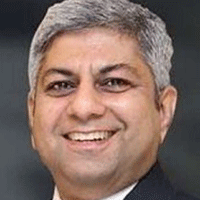
Alok Nanda leads 5000+ engineers and scientists across multi-disciplinary R&D labs and industry verticals including Aviation, Healthcare, Power, and Renewables. Alok inspires collocated multi-disciplinary GE technology teams in India to create value beyond individual team potential. He is responsible to drive regional business outcomes through innovative technology solutions and to maximize value for GE from the India ecosystem through strategic partnerships, monetizing IP, and external funding. Prior to his current role, Alok was the Chief Operating Officer at GE India Technology Centre, and General Manager for Engineering in India for GE Aviation. He developed and led an innovative and high-performing team to create deep technical impact across the GE Aviation business and established a successful Services Engineering organization in the region to support GE’s key customers. Alok has been with GE for about 20 years and has held engineering and technical leadership positions across Aviation, Power and Global Research. Prior to joining, GE, Alok spent eight years at the Indian Defense Research & Development Organization (DRDO). Alok is the co-chairperson of the CII (Confederation of Indian Industry) National Committee on R&D & Innovation. Alok has a master’s degree in mechanical engineering from Indian Institute of Technology, Mumbai; and is based in Bangalore, India.
3 - Dec, 12:10 - 1:40
Honeywell
Future of Aviation and Disruptive Innovation
Since the first flight in 1903, the aviation industry has always been a high tech industry, and continuous progress in the development and adoption of technologies has been its hallmark. The innumerable challenges and changes that were embraced by the aviation industry were driven by a host of different factors such as geo political developments, global and regional economy, evolution of the transportation industry, design and manufacturing technologies, and environment. With each passing decade these factors coupled with technological advancements have defined the nature of the aviation industry and its products. The proposed talk will focus on present day aviation industry, new aircraft configurations, technology trends, and the design of future aircraft systems.
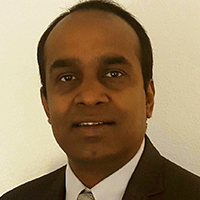
Ramakrishnan Parasuraman alias Ramki is the Senior Director of Engineering for Engines and Power Systems at Honeywell Technology Solutions, Bangalore, India. At Honeywell India, Ramki leads the engineering team for aerospace propulsion engines, auxiliary power units and aircraft electrical systems and components. He has over 25 years of progressive experience in the aerospace industry driving global product development and technology initiatives with a strong business acumen. He is responsible to deliver world class solutions from concept to full scale development for leading aerospace majors by leveraging innovation, execution, organizational excellence, and talent transformation. Prior to joining Honeywell, Ramki was a Scientist and Deputy Project Director at National Aerospace Laboratories, Bangalore, India. He was part of the team which designed and developed SARAS, India’s first civil aircraft. At NAL, Ramki was responsible for mechanical systems and the integration of aircraft leading to flight tests. Ramki holds a Masters degree in Engineering, in Aviation Transport, from Riga Aviation University, Riga, Latvia. Ramki's interests are in systems design, multi disciplinary optimization, organizational development, and next gen technologies.
3 - Dec, 2:20 - 3:50
Panel Session: Decarbonization of Turbomachinery
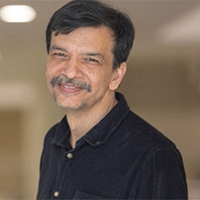
Rangan Banerjee (Moderator) is the Forbes Marshall Chair Professor in the Department of Energy Science and Engineering at IIT Bombay - a Department that he helped start in 2007. His areas of interest include energy management, modelling of energy systems, energy planning and policy, hydrogen energy and fuel cells. Professor Banerjee is on the editorial board of International Journal of Sustainable Energy, International Journal of Sustainable Engineering and International Journal of Thermodynamics, Solar Energy Advances and Frontiers in Energy Research. He has been involved in setting up a Megawattscale Solar Thermal Power Testing, Simulation, Research Facility sponsored by the Ministry of New and Renewable Energy. He was the faculty advisor to Team Shunya the first Indian Student team selected for the finals of the Solar Decathlon 2014 held in Europe that involves designing and constructing a fully functional Solar house. He was a member of the TIFAC Technology Vision 2035 - Apex Committee and Chairman of the Energy Technology Theme. He was a Convening Lead Analyst for Industrial End Use Efficiency and a member of the executive committee for the Global Energy Assessment (2008-2011) coordinated by the International Institute for Applied Systems Analysis. He was a Member of International committee to review UK's Energy Research Programme in 2010 (RCUK Review of Energy). He was a member of the Working Group on New and Renewable Energy for the Elleventh and Twelfth Five Year Plans and a member of the Planning Commission's Integrated Energy Policy. He has been involved in advising the city, state regulatory commission and energy agency, Planning commission, Niti Aayog, MNRE on energy issues. Professor Banerjee has co- authored a book on Planning for Demand Side Management in the Power sector, a book on Energy Cost in the Chemical Industry and a book on Engineering Education in India. He is also an Adjunct faculty (Honorary) in the Department of Engineering & Public Policy, Carnegie Mellon University and is a Fellow of the Indian National Academy of Engineering.
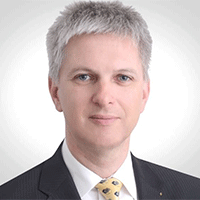
Erik Zindel (Panelist) from Siemens Energy is VP for Generation Sales - Hydrogen. In this role he is responsible for hydrogen activities within the Generation Division of Siemens Energy, leading the initiative for hydrogen combustion in gas turbines and supporting Business Development and Sales around the hydrogen value chain. Together with other representatives from the other Divisions, he participates in the definition and execution of the hydrogen strategy of Siemens Energy. Erik Zindel has been working for Siemens Energy during the last 27 years in Germany, Spain, United Kingdom, South Korea and Mexico in a large variety of positions for both large fossil-fired and renewable power plants as well as for industrial power plant applications. Erik Zindel grew up in Zaragoza/Spain and has a Master´s Degree in Mechanical Engineering from the Technical University of Darmstadt/Germany.
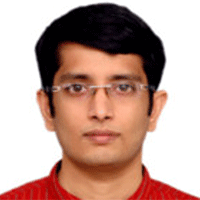
Prof. Satyanarayanan Seshadri (Panelist) is an Assistant Professor in the Department of Applied Mechanics, Indian Institute of Technology, Madras. After completing his MS and Ph.D. from Texas A&M University, USA, Satya worked as a Post Doctoral Research Associate at Rutgers University in the field of Bio-aerosols. Later on, he joined General Electric (GE) Global Research Centre in Bangalore, India, where he worked in the Thermal Sciences Lab. In GE, he was involved with thermodynamic and performance analysis of biomass and solar plants, waste heat recovery systems, atomization, mixing and heat transfer projects. Dr. Satya then became the R&D Leader of Forbes Marshall Tech Centre, Chennai, India. He was actively involved in guiding product and technology development activities for Forbes Marshall in the areas of combustion, steam instrumentation and control systems. Currently, he is the Principal Investigator of the Energy and Emissions laboratory at IIT Madras. His research interests include waste heat recovery (Organic Rankine Cycles Expander development), thermodynamic and economic optimisation energy use in process plants, aerosol technology gaseous and particulate emission monitoring systems. His current research arear are on optics based instrumentation for PM and gaseous emissions, rotary expander development for use with Steam & Organic Rankine Cycle Systems and technology and policy roadmap for enabling CHP in Indian Industries (with CTaP).
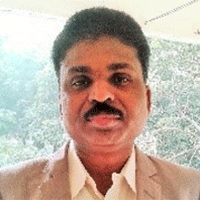
Dr. K. A. Subramanian (Panelist) is working as a Professor and currently the Head of the Department of Energy Science and Engineering, Indian Institute of Technology Delhi, and former Head of the Centre for Energy Studies from 2019 to 2021. After he completed his Ph.D. from the Department of Mechanical Engineering, IIT Madras, he worked as a Scientist at the Indian Institute of Petroleum, Dehradun. His main research area includes Hydrogen Energy, Alternative fuelled internal combustion engines/vehicles, Hydrogen Backfire and combustion, Hydrogen Fuel Cell, Oxy-combustion, Biofuels and Engines, Zero emission vehicles, Hybrid Energy Systems, and Integrated Energy Systems. He is one among the Top 2% Scientist by Stanford University, 2020 in the world. He has completed several sponsored research projects in alternative-fuelled internal combustion engines/vehicles. He has recently developed the technology for the utilization of hydrogen in spark-ignition engines for electrical power generation, and Dimethyl Ether fuelled Engines / Vehicles with the collaboration of oil and original engine manufacturers. He has also developed Alcohol fuelled engines, Biogas vehicles, DME-fuelled engine/vehicle, Dual-fuel engines (Hydrogen-Diesel, CNG-Diesel, Biogas-Diesel), and Energy efficiency improvement using Oxy-combustion. He developed many numbers of courses including Hydrogen Energy, Zero Emission Vehicles, Bioenergy: Resources, Technologies and Assessment, Carbon Capture and Storage and Organic Waste to Energy Conversion Technology. He has guided several doctoral (Ph.D.) scholars and published several research papers in reputed Journals. He has filed two patents so far. He is the author of the book 'Biofueled Reciprocating Internal Combustion Engines' and co-author of another book 'Alternative Transportation Fuels: Utilization in Combustion Engines' published by CRC Press (Taylor & Francis Group).
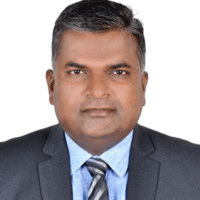
Murugesan Seerangan (Panelist) is currently working as Consulting Engineer in the Gas Turbine Engineering CoE, part of GE Gas Power Bangalore Engineering team. He is working in GE for about 17 years. Murugesan began his career as a lecturer in Vellore Engineering College (now, a Deemed University) in Tamilnadu. Prior to joining GE, he was working in QuEST and Hindustan Aeronautics Limited (HAL) Engine division with different Engineering and Program Management roles, working on developing new products, manufacturing support to resolving customer field issues. He is a postgraduate in Mechanical Engineering, from University of Madras. With an overall Engineering experience of about 25 years, his areas of expertise are mechanical design, analysis and lifing of Gas Turbine components.